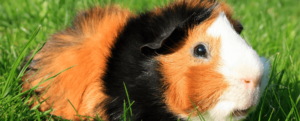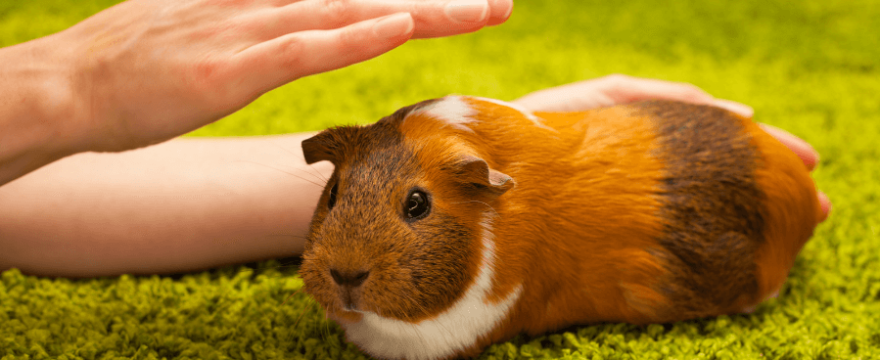Are you ever curious about how long you’ll have your adorable guinea pig? If you’re like me, you want to keep your pet healthy and happy for as long as possible. Did you know that guinea pigs live 5-7 years on average? Some even live for 8 years or longer if they are given the appropriate care.
This article will discuss the things that affect their longevity, offer recommendations on how to make them live longer, and even dispel some popular myths. By the end, you’ll have all the information you need to provide top-notch care for your guinea pig.
Average Lifespan of Guinea Pigs
Guinea pigs usually live for about 5 to 7 years on average. However, the variation in these factors can depend on various elements, such as breed and the level of care provided. Particular guinea pigs have been observed to live for 8 years or even longer when provided with excellent care.
Variations Among Breeds
- Short-Haired Breeds: Breeds such as the American or Abyssinian guinea pig usually have shorter lifespans, typically around 5 to 6 years.
- Long-Haired Breeds: Breeds like the Peruvian or Silkie can also live 5 to 7 years, but their care requirements may vary slightly because of their long fur.
Knowing the average lifespan of your particular breed can help you customize care to optimize its well-being and lifespan.
Key Factors Affecting Guinea Pig Lifespan
Several important factors impact the lifespan of a guinea pig-
- Genetics play a crucial role in determining a guinea pig’s lifespan. Certain guinea pigs may be prone to inheriting health issues that could potentially reduce their lifespan. However, through selective breeding practices, genetic risks can be reduced, resulting in healthier guinea pig populations.
- A guinea pig’s health requires a well-balanced diet. A diet rich in vitamin C is essential, as guinea pigs are unable to produce this vital nutrient themselves.
- Essential Nutrients are important to provide guinea pigs with a diet that consists mainly of fresh hay. This should be supplemented with fresh vegetables, a moderate amount of fruits, and specially formulated guinea pig pellets.
- It’s important for them to be conscious of their diet, avoiding high-sugar or high-fat foods and making sure they always have access to fresh water.
- Leafy greens, bell peppers, and cucumbers are highly recommended. To prevent the formation of bladder stones, it is important to avoid iceberg lettuce and any food high in calcium.
- Ecology Ensuring a secure and engaging setting is of utmost importance.
- A roomy enclosure with appropriate bedding and places to hide is crucial for optimal living conditions.
- The significance of providing adequate space and enrichment for guinea pigs cannot be overstated. These adorable creatures require ample room to roam and engaging toys to keep their minds active and stimulated.
- Temperature and Humidity Ensure that the habitat maintains a suitable temperature range of 65-75°F and minimize excessive humidity levels.
- Medical care Regular veterinary care is essential for identifying and addressing health concerns at an early stage.
- Regular check-ups are essential for identifying potential problems early on. Health issues and prevention are essential to stay vigilant for common issues such as respiratory infections, dental problems, and scurvy.
- Although vaccinations are not necessary for guinea pigs, it is needed to regularly control parasites and promptly address any illnesses that may arise.
Signs of Aging in Guinea Pigs
As guinea pigs get older, they may start showing specific symptoms:
- Changes in behavior may include less activity levels, reduced interaction, and alterations in eating patterns.
- Physical changes may include a reduction in weight, fur becoming thinner, and potential dental issues.
- Typical health concerns that may arise with age include arthritis, cataracts, and reduced mobility.
These early symptoms might help you care for your aged guinea pig.
Tips for Extending Your Guinea Pig’s Lifespan
By following these guidelines, you can make sure that your guinea pig enjoys a longer and healthier life.
- Make sure to provide a well-rounded diet that includes plenty of vitamin C and fresh foods for optimal nutrition.
- For a safe and stimulating environment, clean their box often, give them toys, and make sure they have enough room.
- Incorporating regular exercise and social interaction into your guinea pig’s routine can help. Make sure to provide daily playtime and opportunities for interaction with other guinea pigs or humans.
- Maintaining a close eye on their health and making regular trips to the vet are important.
Common Myths About Guinea Pig Lifespan
Dispelling lies may lead to improved care practices-
Myth 1: All Guinea Pigs Live the Same Amount of Time
Reality: Guinea pigs’ lifespans can differ greatly depending on their breed, genetics, and the level of care they receive.
Myth 2: Indoor Guinea Pigs Live Significantly Longer Than Outdoor Ones
Reality: Whether you keep your pet indoors or outdoors, it’s important to provide it with the proper care.
Myth 3: Feeding Commercial Pellets is Enough
Reality: A diet consisting only of pellets may not provide all the essential nutrients, such as vitamin C, that are necessary for optimal health.
Do Indoor Guinea Pigs Live Longer?
A common view is that guinea pigs that live inside tend to live longer than those that live outside. Living inside can protect them from extreme weather, predators, and natural dangers, which could make them live longer. But no matter where they live, giving them the right care and attention is important for making them live as long as possible.
Can Guinea Pigs Live Alone if One Dies?
Guinea pigs are very social animals that love being with other animals. A guinea pig’s cage mate may feel lonely and sad when one of their friends dies. Some guinea pigs may be able to live alone, but many would rather have a friend to play with. Adding a new guinea pig slowly can help your pet adjust and give it much-needed company during this difficult time.
How to Tell Guinea Pigs Age?
It can be hard to tell how old a guinea pig is if you know very little about its past. But there are a few things that can give you clues:
- Teeth: The teeth of younger guinea pigs are whiter and sharper, while the teeth of older ones may be worn down and yellow.
- Fur: A guinea pig’s fur is usually softer and smoother when it is young. As it gets older, it may get rougher hair or spots where the fur is getting thinner.
- Health: Younger guinea pigs tend to be more busy and full of energy. Older guinea pigs may show signs of aging, like being less mobile or stiff.
What is the Most Common Cause of Death in Guinea Pigs?
A guinea pig can die from a number of different health problems. Some of the most common are scurvy, respiratory infections, and tooth problems.
Respiratory infections, which are frequently the result of poor ventilation or exposure to drafts, can quickly turn fatal if you don’t treat them. Tooth problems, like overgrown teeth or oral abscesses, can cause pain, make it hard to eat, and even spread to other parts of the body. Joint pain, swollen limbs, and internal bleeding are just a few health problems that can result from vitamin C deficiency, which causes scurvy.
Should I Replace a Dead Guinea Pig?
Adding a new guinea pig after an old one has died depends on a number of things, such as the age and character of the one you already have. Some guinea pigs might do fine living alone, while others might do better with a friend. Introducing a new guinea pig slowly and letting them get to know each other through smells and controlled play can help make the change go smoothly for both pets.
How to Prevent Common Health Issues in Guinea Pigs
Giving your guinea pig preventative care is the best way to make sure it lives a long and healthy life. Here are some ways to keep yourself from getting common health problems:
- Proper Diet: To support general health and avoid nutritional deficiencies, give your horse a balanced diet that includes fresh vegetables, hay of good quality, and foods high in vitamin C.
- Clean Space: Make sure the guinea pig’s cage is clean and dry so that germs and parasites that can cause infections don’t build up.
- Regular visits to the vet: Set up yearly checkups with a vet who knows how to treat guinea pigs to keep an eye on their health and catch any problems early.
- Social Interaction: To keep your guinea pig from getting bored and lonely, make sure it has lots of chances to connect with other animals and think about new things.
How to Comfort a Grieving Guinea Pig
When a guinea pig loses a cage mate, they might feel sad and alone. Here are some ways to help a grieving guinea pig:
- Spend more time with your guinea pig and snuggle, treat, and gently reassure it.
- Give fresh toys and activities to keep your guinea pig cognitively busy and distracted.
- If your guinea pig is being very lonely, you might want to think about acquiring another pet.
Finally, happy, long-lived guinea pigs require understanding and care. Proper nutrition, a stimulating environment, and routine healthcare can extend their longevity beyond 5–7 years. Improve your guinea pig’s care and bond now. Check out our guinea pig nutrition guide for more recommendations. Make sure our pets thrive for years!

Leave a Reply